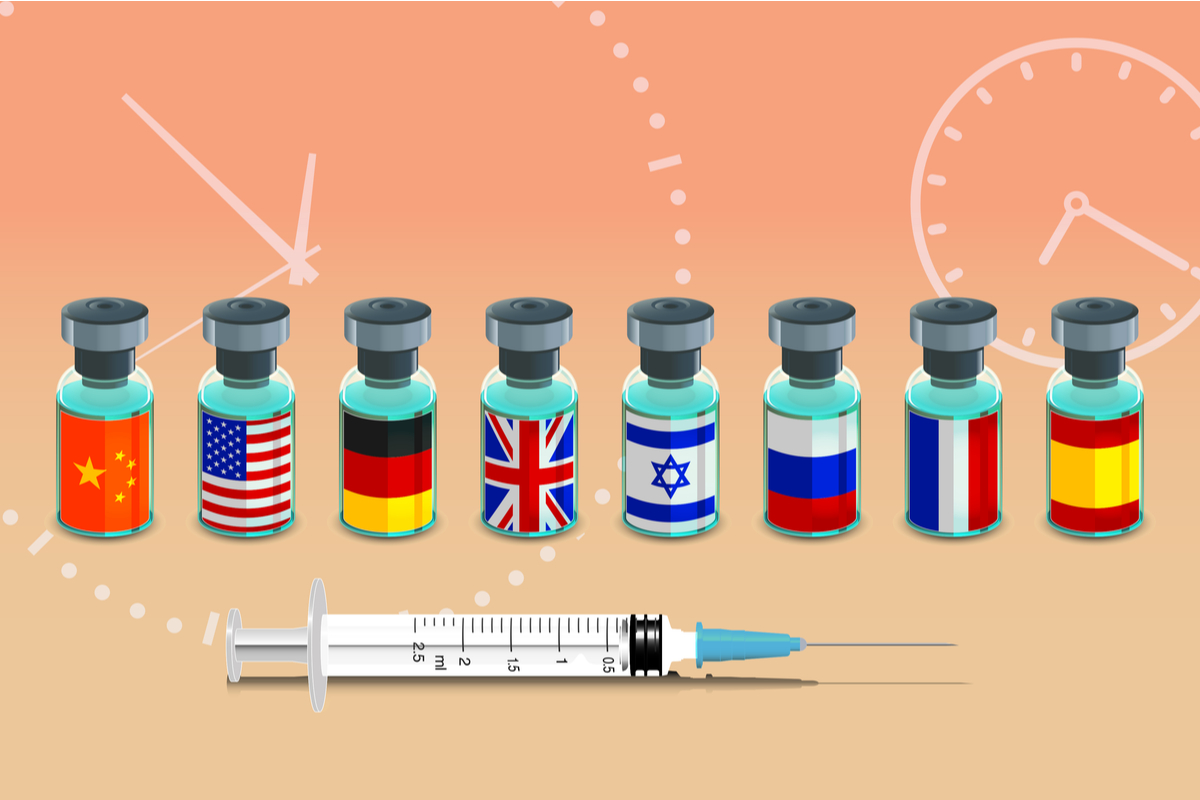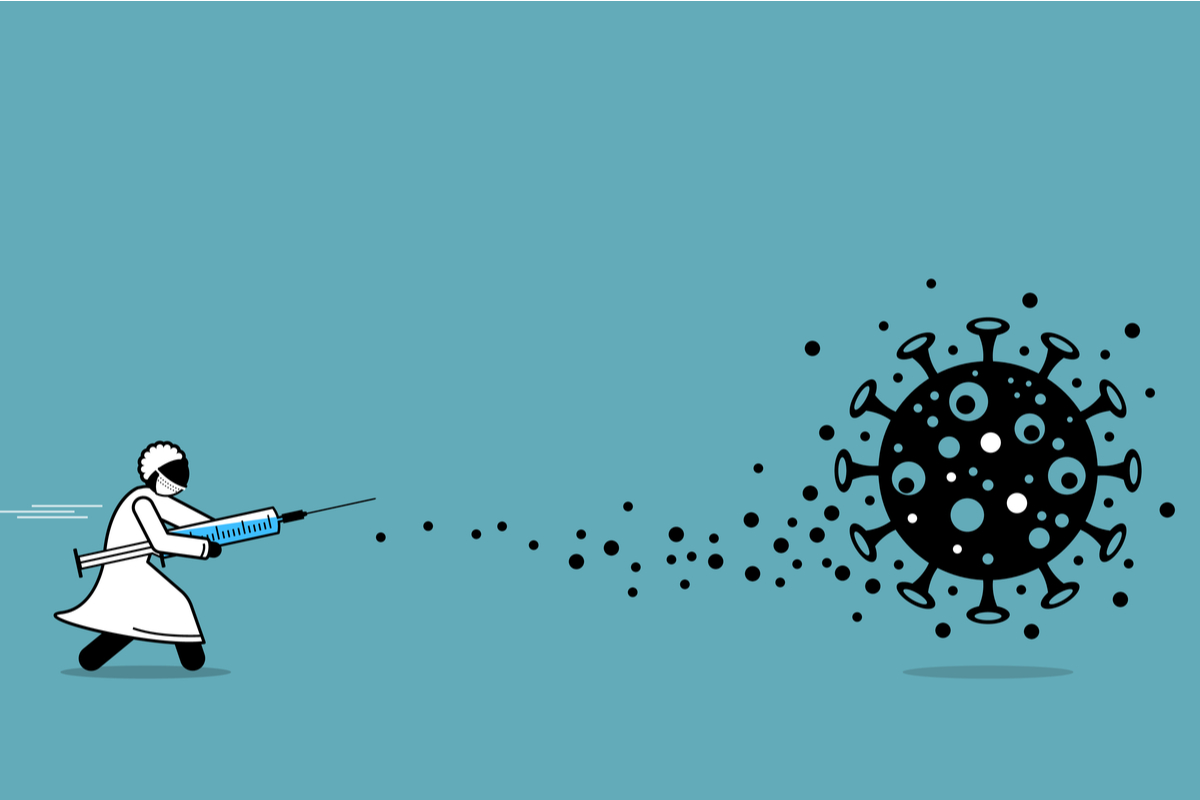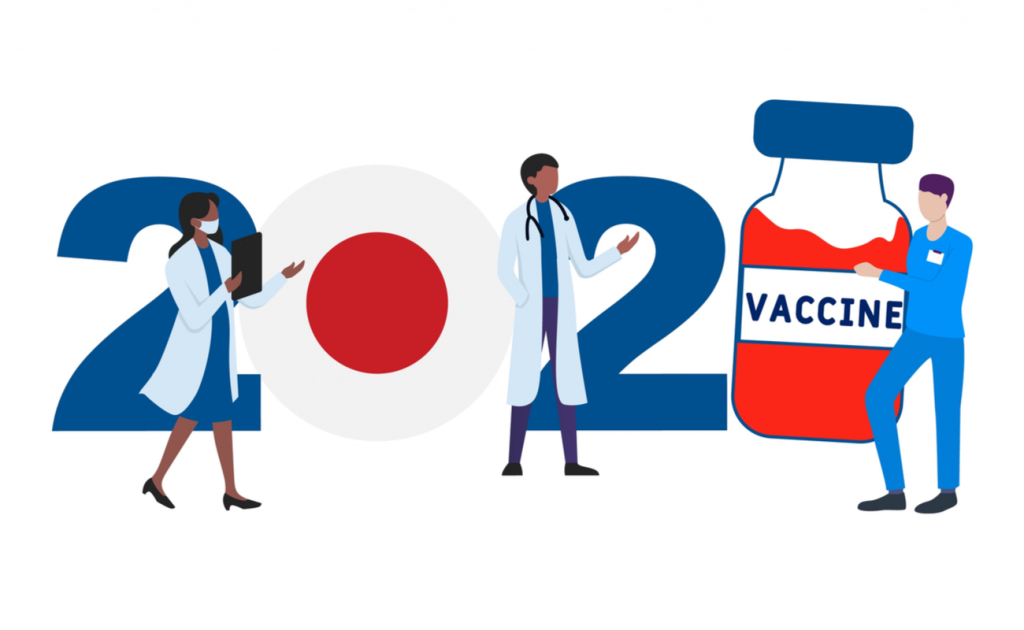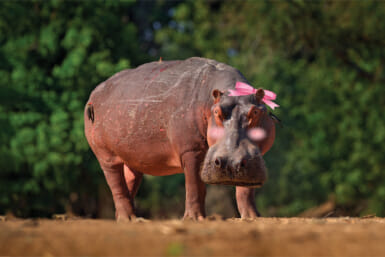I gave up on expecting a Covid-19 vaccine in Japan perhaps not long after I’d heard the folks at Oxford had slung one together in the lab. Only when a syringe is extending from my arm, can you convince me Japan has included me in the inoculation plans. If you don’t quite share in my skepticism, here are a few of the things we’ve been told in recent months:
That there needs to be a push to get vaccines into care homes, yet Japan has waited until April to administer jabs to the elderly – and only by fully-licensed physicians. That Japan is doing “everything possible” to get enough vaccines for half the population in time for the Olympics (now less than 100 days away), while the Moderna and AstraZeneca approvals remain in the suspended limbo of internal clinical trials. That Olympic athletes and officials don’t need to be inoculated, yet Japan reportedly made clandestine plans to vaccinate all of its athletes anyway. And subsequently, we’ve been told that Japan is actually not going to inoculate its athletes, according to one source, while another source thinks that’s a swell idea – never mind the world’s most aging population with whom these young, fit Tokyo 2020 participants share a country. Meanwhile, Japan’s Prime Minister and foremost Olympic soothsayer, Yoshihide Suga, is proclaiming the upcoming Games as “proof of human victory against the pandemic.” “Victory”, a term used loosely, I presume.
At some stage, this endless string of promises not upheld descends into a warped reality TV version of The Boy Who Cried Wolf – and we all know how that one ends. With so much internal financial clout, so much geopolitical goodwill, and the already once postponed Tokyo 2020 Olympics beckoning, pray tell us what’s been the hold up for Japan’s vaccines?
Medical workers, and then the elderly, get priority in COVID-19 vaccinations. But vaccine shipments have not perfectly matched those standards, leading local governments to improvise solutions.https://t.co/KBOF4iSEVU
— The Japan News (@The_Japan_News) April 15, 2021
Better Late Than Never?
On Monday, April 12, Japan started rolling out vaccines for the elderly – with each prefecture receiving a minimum of 2,000 doses – a full four months behind some of its international peers. According to Our World in Data, Japan’s vaccination rate is the lowest among the 37 OECD countries, which includes nations like Iceland, Lithuania, and the Slovak Republic, each of whose annual GDPs would fit into Tokyo’s alone ten times over.
Including medical workers, Japan has vaccinated less than 1% of its population as of the time of writing. For purposes of comparison, the UK has given at least one dose to well over half the population. Across all UK regions, my home country Northern Ireland has the lowest amount of partially vaccinated people in the over 50s category (the category which currently accounts for 88% of recorded Covid-19 deaths) – which is still a whopping 63%.

Covid-19 Vaccine Diplomacy
In an earlier op-ed for Tokyo Weekender, I spoke of Japan’s trepidation towards foreign pharmaceuticals and the regulatory hurdles of getting a vaccine approved in Japan. Furthering these underlying complications is the European Union’s new export controls. The controls essentially boil down to the playing out of vaccine diplomacy and rationing – a paradigm in which nations and groups of nations are finding themselves locked.
The EU, looking out for its own, realized it may not have enough Pfizer BioNTech shots to inoculate its own population amid infection surges in member states. That is the same vaccine, produced primarily in Belgium, of which Japan has approved and ordered 144 million doses. When the ever-stone-faced European Commission President, Ursula von der Leyen, said, “We have to ensure timely and sufficient vaccine deliveries to EU citizens,” the shorthand was: perhaps those of us waiting on Pfizer exports ought not to hold our breaths.
Japan’s appointed vaccine minister Taro Kono’s rebuttal was a shrouded threat of its own, expressing extreme concern that “friendly relations between Japan and the EU would be [adversely] affected” if a vaccine shipment to the former was suspended.
The Kono-Suga duo are now hoping to have enough vaccinations for the entire over-65 population – 36 million of Japan’s 127 million total – by late June (a date that keeps subtly sliding down the calendar). They’re also hoping for a total of 344 million doses, collectively from Pfizer BioNTech, Moderna, and AstraZeneca, by the year’s end. This dependency on vaccine imports has cost about US$6 billion so far. But in that respect, Japan has been the architect of its own demise.
Shionogi to develop COVID-19 vaccine https://t.co/51J44uVA1x
— NHK WORLD News (@NHKWORLD_News) April 27, 2020
An Internal Struggle Around Creating a Vaccine in Japan
Though manufacturing of the allotted 120 million AstraZeneca and 50 million Moderna shots has been outsourced to Japanese pharma companies, only four have home-grown vaccines in the clinical trial phase: AnGes, Shionogi & Co., Daiichi Sankyo, and KM Biologics Co. Yet it’s possible none will receive approval before 2022. This lack of movement can be somewhat explained by the perceived risks around vaccine side effects, stemming from inflated horror stories of diphtheria, MMR, and HPV vaccine campaigns, all of which linger in living memory.
In 2016, the Japanese Health Ministry warned that Japan’s uncompetitive vaccine industry would be left wanting if a pandemic broke out, calling vaccines “an essential part of national security” – prescient words now coming back to bite the administration. The Prime Minister finally moved to strengthen Japan’s vaccine industry in February, but only five months into his virus-riddled tenure.
What’s strange is that Japan has the third-largest pharmaceutical market in the world after the US and China. Takeda, who began running trials of the Moderna vaccine on Japanese patients in January, is one of the world’s wealthiest pharmaceutical transnational corporations. But with priorities lying elsewhere, and the small-scale, low-investment, bureaucratic nature of the industry at large, Japanese vaccines never stood a chance in the international Covid-19 vaccine race.

Will Vaccines Bring Life “Back to Normal”?
Well, first of all, “back to normal” is a relative term. As I write this, I am sat in a convivial café-cum-bar quietly depleting the fresh, golden draft beside me – a situation friends back home would sell a child for. Whether or not these vaccines will bring us back into a pre-Covid society, is perhaps a better question. For now, that’s anybody’s guess.
Even working on the assumption that the vaccine’s arrival is a net positive for society, I still wonder what it all means. The current roster of shots seems to provide at least some protection against the currently known strains of Covid-19. But viruses are wily little organisms and are no doubt mutating merrily away as they build up their own levels of immunity.
Scientists are hopeful vaccines signify the end of this pandemic. But scientists have also told us conflicting things over the past year, as they were rushing to study and understand this virus. Remember they said we didn’t really need masks? Now America’s science darling Dr. Anthony Fauci is about three press conferences away from appearing in a hazmat suit with rubber gloves, goggles and a fly swatter telling his fellow Americans “this is just the beginning”.
This is all to say: who knows what 2022 and beyond holds. Japan has at least started importing Covid-19 vaccine doses and some more are hopefully on the way. And though I am rather cynical about the whole affair, the next twelve months could determine how we emerge from this unendingly strange period of human existence.
The Government of #Japan published an English language website about the #COVID19 vaccine. Please check this website for details and further information. https://t.co/biFIaw3tiz pic.twitter.com/MVnoERv5nq
— U.S. Embassy Tokyo, ACS (@ACSTokyo) February 25, 2021
If you want to stay up to date with the Covid-19 situation in Japan, check TW’s updates here.









